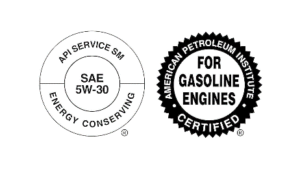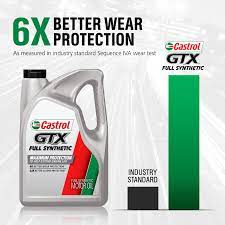Motor oil can be broken into three segments – synthetic oil, synthetic blend oils, and conventional motor oil. While there are several factors in comparing synthetic vs conventional oil and synthetic blend vs full synthetic, there are unique characteristics and specifications to help you determine which oil is the best fit for your vehicle.
Synthetic motor oil has gone through a chemically engineered process, meaning it is going to clean better and last longer than other types of oil. In most cases, synthetic oil has better extreme high temperature and low temperature performance. Synthetic oils are generally formulated with higher performing additive packages.
The difference between synthetic oil and a synthetic blend is that a synthetic blend motor oil uses a mixture of synthetic and conventional base oils for added resistance to oxidation (compared to conventional oil) and provides excellent low-temperature properties. Therefore think of synthetic blend oil as a middle-tier option between synthetic and conventional.
Conventional motor oils can be formulated in a range of viscosity grades and quality levels. Conventional motor oil is recommended for drivers with simple engine designs and regular (as opposed to severe) driving styles. Years ago, most vehicles on the road were factory filled with some type of synthetic motor oil. Almost one fourth of all vehicles that come in for service will choose conventional motor oil for their vehicle. Over time we are starting to see conventional motor oil phase out and be replaced by synthetic blend. At Carolina Quick Lube our entry-level full-service oil change offer is actually a synthetic blend. Nothing but the best for our customers!
Motor Oil Grades
Motor oils use a rating system developed by the Society of Automotive Engineers (SAE), to classify oil by viscosity. Viscosity is a fluid’s resistance to flow. Fluids that are thin (like water) have a low viscosity, and fluids that are thick (like honey) have a high viscosity. Motor oil also changes in viscosity measurement as it is heated or cooled. SAE viscosity grades
Multi-grade viscosity motor oils can perform at a wide range of temperatures. For an oil with an SAE viscosity grade of 0W-20, the “0” is the cold-temperature viscosity rating (the “W” stands for “Winter”), and the “20” is the high temperature viscosity rating. Multigrade viscosity motor oil flows well at low temperatures, but still protects the engine at high temperatures
For comparison’s sake, SAE 5W-30 and SAE 0W-30 will flow better at colder temperatures than SAE 10W-30, while still providing protection at higher temperatures.
Always follow the vehicle owner’s manual to determine the correct motor oil specification, viscosity grade, and oil drain interval for your engine.



